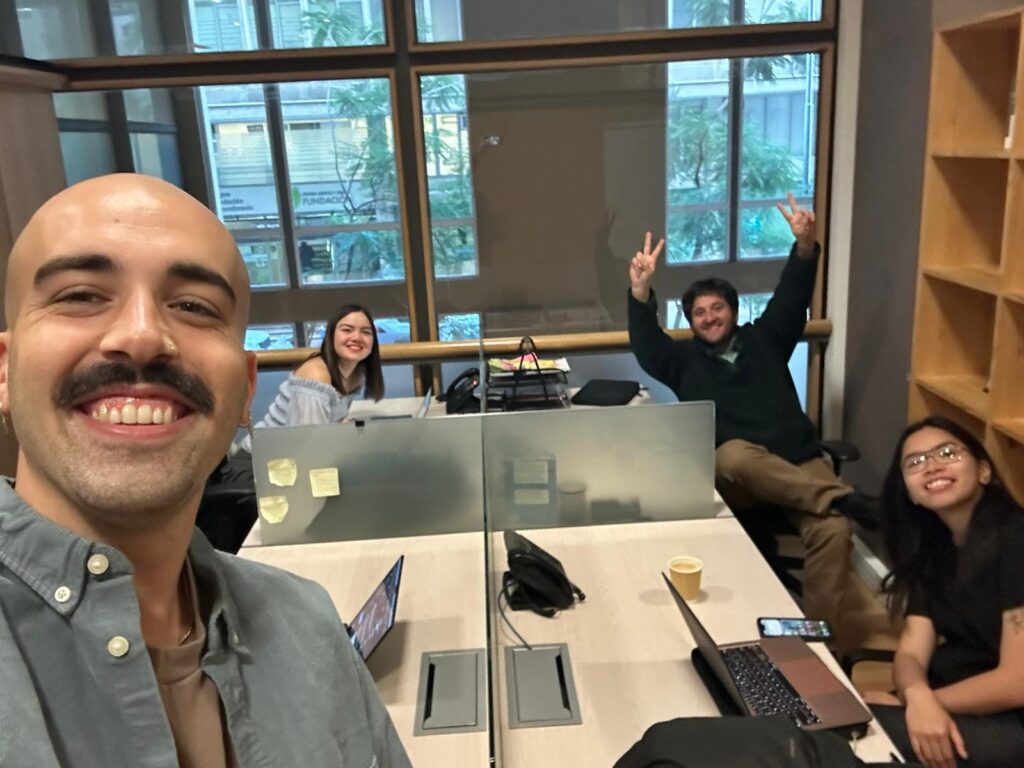By Tien Vo, Undergraduate student in the UT Government Department, Mathematics Department, and Polymathic Scholars Honors Program
I recently graduated from the University of Texas at Austin with degrees in government and math. This summer I got to work with International IDEA through an internship organized by the UT Government Department and two amazing professors, Ashley Moran and Zachary Elkins. It is a newly developed internship program to study democratic institutional development in Latin America, and it has been an honor being one of the students chosen to participate in this program.
While International IDEA’s regional office is in Panama City, three other students and I got the chance to go to Santiago, Chile, where the country is drafting a new constitution. We thus had many opportunities to attend events and meet experts that are currently writing the constitution. This was clearly a once-in-a-lifetime experience, particularly considering the difficulties of amending the U.S. Constitution.

My main work for IDEA was to research two topics—artificial intelligence (AI) and social media—and their influence on democratic governance. Through this research, I learned a lot and was amazed by the information I didn’t previously know. I was particularly struck by how common AI-generated content has become in politics—from news coverage to election campaigns—and how it is being used to disrupt the democratic process in elections. I collected data from experts who are teaching and leading research on these technologies, finding that some colleges offer extensive programs on the effects of AI or social media on politics and elections, while others try to restrict the regulation of these technologies.
Academic and government experts are now looking into how to effectively regulate these technologies, as we have seen how social media spirals almost out of control and heavily influences elections across the world. Similar fears are raised about AI and its advancement in the near future. While I have been concerned about and studied the influence of social media platforms on politics and the public, I had not previously studied the role of AI in politics. I previously thought of AI as mostly computational and scientific—a technology reserved for the data sciences. And yet, we see more and more ways that artificial intelligence is being used to manipulate people and the democratic process.
Just as we have seen with social media platforms, where effective regulations are often difficult to enforce, we face similar challenges with regulating artificial intelligence. Based on the research that I’ve done for IDEA, it’s clear that regulations and laws are being passed much faster related to AI than they were for social media. International cooperation is also being discussed to ensure that the use of this technology will not harm society as large. The question comes down to how to effectively regulate AI. It will be a fascinating area of research and policymaking to continue to follow in the future. I hope my research for IDEA this summer plays even a small role in helping IDEA support that process.
While my daily work focused globally, this experience would not be complete without actually living in Chile. Spanish is my third language. Coming to Chile, I was as nervous as I was when I studied abroad in Spain the year before. Needless to say, the saying that Chileans don’t speak Spanish, they speak Chilean scared me even more. But I was amazed at the dialects and the different words that people use—so much different from those in Spain or Mexico, which reflect the Spanish you would typically learn in American schools.
The people in Chile were also absolutely wonderful. The host family that I stayed with were some of the kindest people I’ve met and would always check on me and ask if I needed anything. Over the summer, I also got to travel to the Atacama Desert in northern Chile, which has some of the most surreal views I’ve seen. And the coast of the country where Viña del Mar and Valparaíso are located were absolutely stunning, with strong waves and beautiful sunsets.
As a whole, it was an amazing experience, being in a new country, seeing the ways people live, how the nation approaches constitutional design, and researching a new field in politics. It was not something that I thought I would be doing when I went into college or even something I envisioned a year ago while conducting my experiment on affective polarization in the U.S. It was an opportunity that reminded me that there is always something new to experience, see, and learn.
